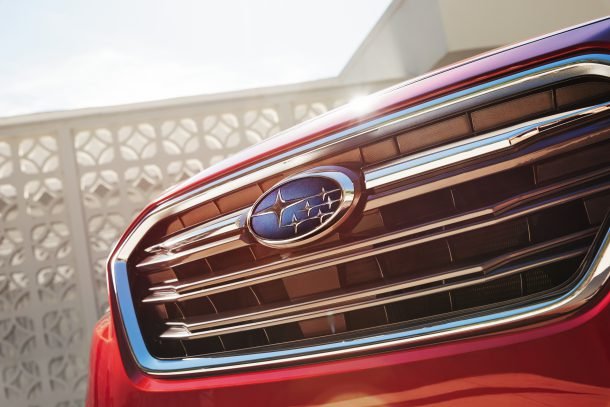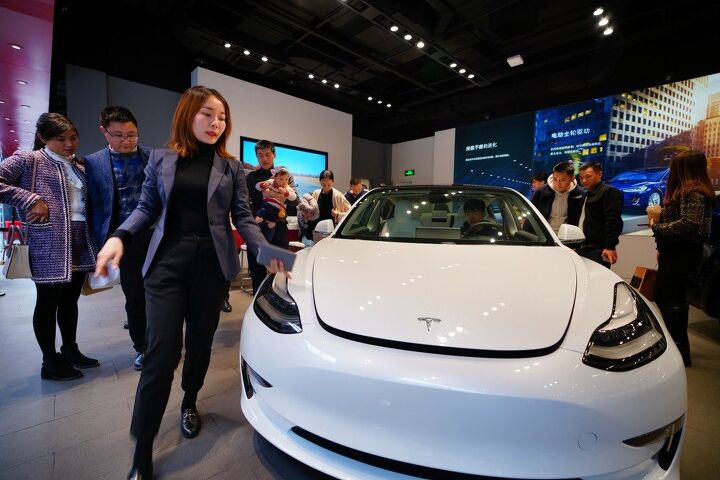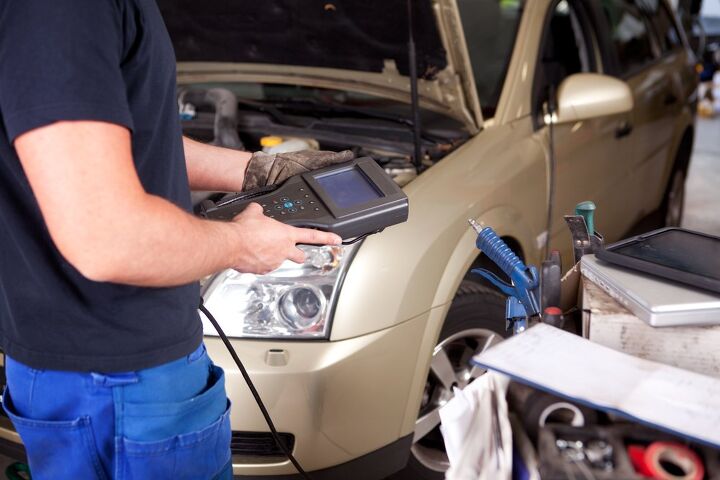#AutomotiveIndustry
Dealer Inventories Could Take a While to Stabilize
Car dealerships around the nation are reportedly having trouble restocking inventories following the prolonged production shutdowns enacted in response to the pandemic. Despite supply chain issues subsiding a bit, Cox Automotive reported the industry only has a 62-day supply of vehicles. That’s approximately 2.3 million sparkly new units, and would be more than enough to keep consumers happy if people didn’t care which model they drove home. Demand may still be suppressed, but the selective nature of shoppers is not.
For example, you may be able to find a Nissan Rogue (the brand’s biggest seller) without much hassle. But finding one equipped how you wanted may be outside the realm of possibility in 2020, depending upon where you live and the fickle winds of fate. And you could apply that same logic to any number of brands, as most continue to note that some suppliers and assembly lines occasionally have to shut down to comply with health mandates.
GM Shares Dystopian Safety Tech, Ford Says Remote Work May Continue Into 2021
General Motors said it plans to share some of the safety technology it developed as a countermeasure to the coronavirus pandemic this week. These include a thermal scanning kiosk that uses infrared imaging to take temperatures of people as they stream into facilities, as well as a touchless printer app designed to keep staff from repeatedly touching the control panel. However, it’s the third item, GM’s contact-tracing software, that’s the most novel and controversial.
Practically every company in the world is working on ways to better track people, and their efforts have only accelerated during the pandemic. The presumption here is that by knowing every person someone has come into contact with, you can effectively track the progress of a virus. Despite sounding terrifyingly dystopian just a few years earlier, the notion has become a favorite among tech giants — most of whom are working on their own version.
GM’s involves a wristband, integrated into iOS and Android devices, that keeps tabs on how close employees are to each other. The company has since added support for Bluetooth beacons.
“We believe our application advances the state of the art when it comes to mobile apps for contact tracing, which is the subject of massive software development efforts across multiple industries today,” Tony Bolton, GM’s chief information officer of Global Telecommunications and End-User Services, said in a release.
Unifor Negotiations Kick Off This Week
Unifor will take on the Detroit automakers this week, with the Canadian union undoubtedly planning to do everything within its power to keep as many jobs as it can manage. Unfortunately, that might be easier said than done, what with vehicle demand suppressed by months of lockdowns and an associated economic recession. Despite the positivity surrounding Wall Street, regular folks aren’t in the mood to buy lately.
No matter. Union negotiations are always famously contentious anyway. Corporations want rock-bottom prices for top-shelf work and labor associations always have to ask for more to rationalize their existence. Unifor President Jerry Dias noted that he’s ready for whatever the Big Three throw at him, though we doubt it will include totally sweet offers for line workers. The best the union can probably hope for in 2020 is not losing more Canadian jobs than absolutely necessary.
Report: Automotive Industry Borrows $132 Billion Through Pandemic
The automotive industry has borrowed an estimated $132 billion since the world started taking the coronavirus more seriously, according to a recent analysis by Bloomberg.
Despite migrating around the planet months before anyone thought to close down a single airport or suggest masks were necessary, March is broadly viewed as the start of the pandemic in the Western World, as that’s when most governments started taking direct action and businesses started looking for handouts. Still, it’s exceptionally difficult to follow the money if you didn’t devote yourself entirely to the task of tracking payments while under shelter-in-place orders.
We do know that a lot of money was being thrown around, however. Car dealerships were among the largest recipients of Paycheck Protection Program (PPP) funds in the United States, garnering anywhere from $7.5 billion to $12 billion in government aid to maintain staff. Plenty of criticism over exactly where that money went arose as the press questioned which businesses were more deserving and who was just taking advantage of the system.
But it’s only the tip of the iceberg. PPP funds don’t need to repaid unless they weren’t earmarked entirely for payroll purposes; the government also used the program to send over $600 billion to support banks in extending low-interest loans to companies during the pandemic. The automotive industry was one of the largest beneficiaries of that arrangement.
Tuning In: Nielsen Podcasting Study Shows Promise for Automotive Advertisers
When I was a young lad, I had a box set of the goofball quiz show You Bet Your Life. Hosted by deceased comedy legend Groucho Marx, the program aired on both television and radio just as they were beginning to swap roles in terms of market dominance in the mid-20th century.
After ribbing guests, Marx would pause to acknowledge the sponsor. More often than not, they were Chrysler products — especially the now defunct DeSoto brand. While I had no idea if Groucho actually cared about the cars beyond the paycheck they offered, something about the format of having someone you actually liked pushing the product stuck with me. I’ve been a fan of DeSoto for years, despite having been born decades after it stopped existing as a brand.
It seems things might be coming full circle. With television now losing prominence to the internet, advertisers, in search of new avenues for income, and have stopped at podcasts. A recent Nielsen study estimated that roughly half of would-be vehicle shoppers visited a website for more information if they heard about it via an audio-focused medium with a strong personality behind it.
Joe Biden Wants to Bring Back Cash for Clunkers
Earlier this week, presumed Democratic nominee for president and former shut-in Joe Biden discussed some of the changes he’d make if elected. While most do not overlap with the automotive industry and would force your author to digress into rants about the perils of unchecked government spending, one item tied to his ambitious $2 trillion climate proposal is related directly to cars — and feels uncomfortably familiar.
Biden appears interested in bringing back the Car Allowance Rebate System (aka Cash for Clunkers) from the last recession, or at least a version 2.0 that accelerates electric vehicle adoption and development inside the United States.
Nissan Predicts Incredibly Lean Year, Plans Accordingly
Nissan’s all-important turnaround has been complicated immensely by the coronavirus pandemic. Supply chains fell into in shambles as countless factories temporarily closed as a countermeasure, harming profits as demand came to a screeching halt. Now there’s a looming recession that many economists fear may surpass the Great Depression — though this was a concern years before the COVID response hit the accelerator, thanks to growing debt and the way finance has been allowed to operate for decades.
Seeing the writing on the wall, many automakers have tamped down expectations for 2020. Being in the peculiar position of restructuring before the pandemic hit — which isn’t all that unique within the industry, truth be told — Nissan is reportedly plotting a 30 percent year-on-year cut in global production.
J.D. Power Says Drivers Still Loyal to Subaru, Lexus
J.D. Power’s Automotive Brand Loyalty Study dropped this week, with Subaru and Lexus predictably topping the charts. Subaru actually edged out Toyota by a hair in the mainstream segment by retaining 60.5 percent of its owners, and is assumed to be aided by younger generations just getting into vehicle ownership. This is something we can back up anecdotally, as many drivers look back fondly at the nameplate and are eager for a second helping.
If your author had a nickel for every person that happily reminisced about the hand-me-down Subaru Legacy or Forester wagons they drove during their formative years, he would have a jar full of coins wasting space on a shelf somewhere because nickels aren’t particularly valuable.
Texas Tempts Tesla With Tax Breaks
If you happen to find yourself running a section of this country and would like an automaker to build a factory there, we’ve got a couple of tips to help improve your odds. It might be unfair to call them tips, however, as they’re common knowledge and realistically the only way to get a business to settle on your land. Step One involves promising as much money and as little regulation as possible. Step Two involves waiting for their response.
Hoping to beat out Oklahoma as the home of Tesla’s Cybertruck, Texas is attempting to dazzle the electric automaker with the tax breaks it knew the company wanted. All the automaker has to do is spend over a billion dollars to build its facility in Travis County.
Lucid Motors Plots 20 Storefronts By 2021
On Wednesday, Lucid Motors announced plans to open 20 retail locations and service centers across North America by the end of 2021. They’ll be called “Lucid Studios,” helping the company herald in what it considers “new standards for sustainable transportation” via the sale of luxury vehicles.
You know as well as we do that this type of language is customary among EV startups trying to sell you on the concept of shopping your way into a healthier environment. Yet the strategy appears to be working. Electric vehicle firms seem to enjoy nothing but victory on this continent right now — even if they seem to be dying off in places like China — and are poised to make big moves over the next few years.
Market Magic: Fisker Considers Going Public While the Getting Is Good
Fisker Inc. is reportedly in talks to go public after seeing how well other electric vehicle manufacturers (prospective or otherwise) have performed on Wall Street this year. In case you missed it, Tesla became the most valuable automaker on the planet this summer, while startup Nikola saw its shares explode through the ceiling — despite having never manufactured a single product for purchase.
It seems like complete madness, so it aligns perfectly with just about everything else that’s happened in 2020.
Elon Musk: Level 5 Autonomous Driving 'Very Close'
Tesla is reportedly “very close” to achieving complete driving autonomy, according to CEO Elon Musk.
“I’m extremely confident that level 5 or essentially complete autonomy will happen and I think will happen very quickly,” Musk said during a video message for the opening of Shanghai’s annual World Artificial Intelligence Conference.
Nissan's CEO Explains Recovery Plan to Angry Investors
Nissan CEO Makoto Uchida attempted to smooth things over with investors last week by going over his company’s new recovery plan in great detail. As you undoubtedly know by now, the automaker found itself in a less than blissful situation following an ugly internal power struggle that highlighted corporate corruption and a business strategy that seemed like a liability without ideal economic circumstances and the man who penned it running the show.
With its share price already suppressed by worsening sales performance and assumed “management issues” with alliance partner Renault, the internal scandal kicked off by the arrest of former chairman Carlos Ghosn November 2018 is what really sent Nissan’s stock into a tailspin. Shares have lost more than half their value since the incident.
This placed Uchida in the undesirable position of having to explain what went wrong and how to fix it. In the past, Uchida said he’d happily be fired if he can’t turn things around, though that’s usually what happens to CEOs who can’t deliver (or need to be scapegoated and sacrificed on the alter of commerce by their board). Based on comments made at the company’s most recent shareholder meeting, Uchida seems to understand how things work.
“I said, ‘If Nissan’s performance does not improve, please fire me. Please dismiss me,’ ” he reminded the crowd on June 29th. “That’s what I said. And this policy remains unchanged.”
The Hero We Need: Consumer Access to Repair Coalition
When it comes to activism, it’s best to choose your battles carefully. Fortunately, there aren’t too many causes within the auto industry and most are easy to get behind.
Even though environmental activists sometimes find themselves at odds with reality, their hearts are usually the right place, and they’ve encouraged automakers to try new and interesting things with transportation. Safety advocates can likewise go overboard, but we wouldn’t have seen cars get dramatically safer (or heavier) since the 1970s if they hadn’t.
Our favorite has to be consumer advocacy, however. With the exception of the occasional predatory lawsuit looking to take advantage of a dumb corporate decision, there’s precious little to scoff about. It also tends to overlap with our pet peeves by decrying bad business practices within the industry. Case in point, the Consumer Access to Repair Coalition has recently asked Congress to rethink how vehicular data is shared — noting that automakers shouldn’t need real-time monitoring for repairs and that the technology likely poses an unnecessary security risk.
Automotive Retail Jobs Are In Rough Shape
Having already pulverized the dead horse of waning auto sales into a fine paste, we’ll now turn our focus on how it’s impacting employment among automotive retailers — squashing another pony.
Much of the information up until this point has been anecdotal and conditional to the North American response to COVID-19. Furloughs were rampant as the pandemic progressed and new safety rules seemed poised to cripple sales moving forward. There was an obvious general plight confronting automotive retailers, but we couldn’t nail down what that meant in terms of job losses.
We still don’t, frankly. But it is starting to become obvious that there isn’t much reason to be exceptionally optimistic. AutoNation recently announced that around half of the 7,000 workers it furloughed in April won’t be coming back. Despite some retailers claiming not to need such drastic cuts, plenty are following AutoNation’s model. With fewer customers and sweeping restrictions on how showrooms can be operated, there’s little reason for there to be all hands on deck. But just how many will be forced to abandon ship this year?






























Recent Comments